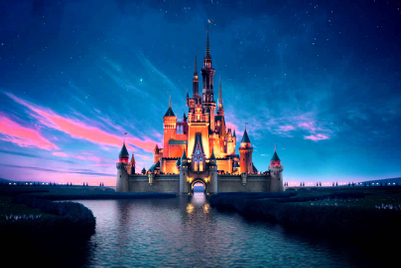
Cultural nuances in these three Asian markets were illuminated by Lamplight's mining of social media data for a week (1 to 6 December), in anticipation for the film’s launch (in South Korea on 17 December, Japan on 18 December and China on 9 January).
The results echo a known marketing truth: understanding cultural nuances is key for success in Asia, as each market showed considerably different results.
Japan is a legacy Star Wars market with a long history of fanaticism for the film, so much so that the market even got its very own The Force Awakens trailer, which revealed new plot points and therefore went globally viral.
Japanese social-media users had three times as many online conversations as Korean and Chinese users combined, with Twitter and Facebook being their platforms of choice.
You may also like:
- Watch: R2-D2's creator on why salesrobots, humanoids, and VPAs may be adland's Force
- May the fridge be with you: How Aqua is setting itself apart in white goods
- Star Wars: A Jedi-level class in integrated marketing and immersive storytelling
- Globe Telecom feels the force of Star Wars marketing
- Star Wars Stormtrooper gets custom look in Nissan campaign
There were other factors creating stirs online. Japanese artist Taro Yamamoto, famous for his parodies of traditional Japanese art, created custom Star Wars screens displayed at Kiyomizu-dera Temple in Kyoto. Ray Park showed up at Tokyo Comic Con to give fans a Lightsaber demo. Geeky R2-D2 clay pots released by Japanese convenience stores also sparked interest among Japanese fans, pushing the Star Wars fever to new heights.

Meanwhile, though China is on track to become the biggest movie market in 2017, Star Wars failed to gain as much online traction as the other two markets. Despite China’s massive number of social-media users, the volume of conversations on Weibo, blogs and forums was only one third of Korea’s output, since the Chinese market is relatively new to the Star Wars franchise.
Chinese audiences needed a rapid introduction before the film's launch. The 2015 Shanghai International Film Festival marked the first time the original Trilogy was screened in China, and Disney partnered with Tencent to allow users to stream and watch all six Star Wars films online.
Luhan (鹿晗) was appointed the official Chinese ambassador for The Force Awakens (see below), and his song “Original Force” 《原动力》went some way in driving conversations, causing periodic spikes in social-media volume—but that did not match Korea and Japan’s sustained buzz.
Lamplight gave overall sentiment in the three markets an aggregated score of +13 (see below), reflecting positive mentions towards the new movie, mainly about discussions of the trailers, particularly the two special ones created for Japan and South Korea.
The considerably smaller amount of negative conversations were around skepticism of the studio's intentions, and fans lamenting the difficulty of getting tickets and exclusive merchandise.
Neutral conversations from China were speculative chatter about the past and future of the franchise in the mainland, as fans jostled back and forth about whether the films will truly break through the way they had elsewhere in the region.




.jpg&h=334&w=500&q=100&v=20250320&c=1)


.jpg&h=334&w=500&q=100&v=20250320&c=1)
.jpg&h=334&w=500&q=100&v=20250320&c=1)

.jpeg&h=334&w=500&q=100&v=20250320&c=1)


.jpg&h=334&w=500&q=100&v=20250320&c=1)







